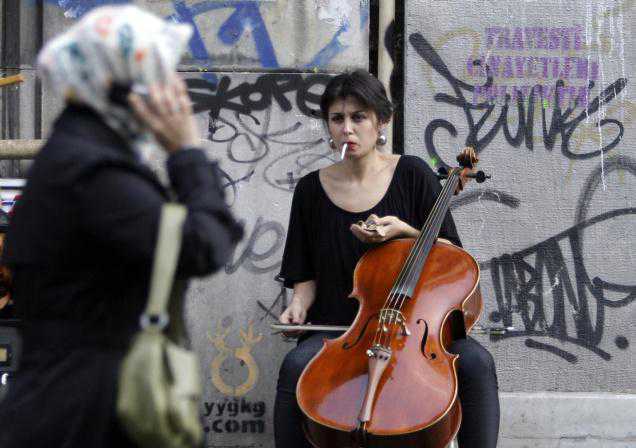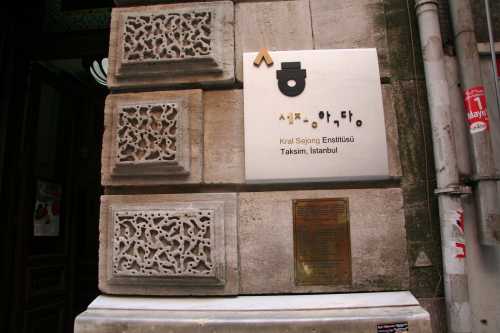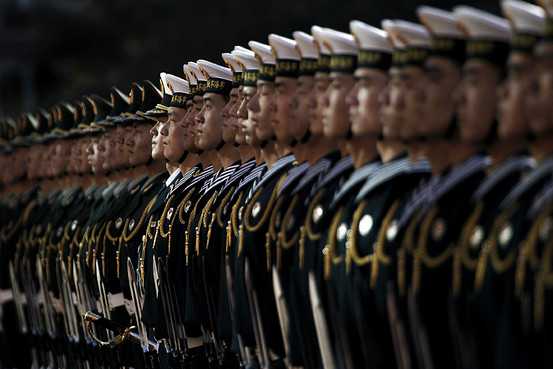South Korea Must Broaden Its Diplomatic Horizons Toward Türkiye and the Turkic World ( Below in Korean Language )
In a world increasingly defined by complex geopolitical rivalries and shifting alliances, South Korea must consider diversifying its international partnerships to ensure national security and long-term prosperity. One compelling avenue lies in forging deeper ties with Türkiye and the broader Turkic world, encompassing over 450 million people and rooted in a shared historical, cultural, and strategic legacy. The time has come for South Korea to revisit these connections and embrace a partnership with profound mutual benefits.
Historical Brotherhood: A Foundation of Trust
The bond between South Korea and Türkiye is not a mere diplomatic formality but a deeply ingrained relationship that transcends generations. This connection dates back to antiquity, with alliances between the Göktürks and Goguryeo during periods of conflict and expansion. It was profoundly solidified during the Korean War when Türkiye responded with unparalleled solidarity, dispatching the Turkish Brigade to defend South Korea. The term “Korean-Turkish brotherhood” encapsulates this unique relationship, one often described as “blood brothers.”
Today, this bond resonates deeply within Türkiye. The average age of Turkish veterans of the Korean War is now 89, yet their unwavering sentiment remains: “An attack on South Korea is an attack on Türkiye.” This powerful ethos is echoed by younger generations of Turks who maintain a profound sense of care and connection to their Korean counterparts. Such enduring solidarity underscores an exceptional opportunity for South Korea to reevaluate its partnerships in a rapidly changing world.
Shared Challenges, Shared Opportunities Türkiye and South Korea face strikingly similar challenges, including managing nuanced relations with powerful neighbors such as Russia and China. The Turkic world, united under the Organization of Turkic States (OTS), has emerged as a significant counterweight in the region. Through initiatives in defense, energy, and cultural cooperation, the OTS exemplifies the potential of unified action among nations with shared roots.
South Korea’s engagement with the OTS could yield substantial dividends. The bloc offers an alternative alliance system that complements South Korea’s existing relationships, diversifying its strategic options. By partnering with Türkiye and the broader Turkic world, South Korea can reduce overreliance on relationships that may prioritize narrow interests confined to the Korean Peninsula.
The Turkic World: A Rising Force Türkiye’s initiatives in Central Asia exemplify a strategic vision for strengthening ties within the Turkic world. Recent developments, including collaborations in trade, infrastructure, and cultural exchange, demonstrate the region’s collective commitment to self-reliance and global influence. South Korea stands to benefit immensely by aligning with this vision. Closer ties with Türkiye and the Turkic nations would provide access to new markets, diversified economic partnerships, and enhanced security frameworks—all vital to safeguarding South Korea’s national interests.
Moreover, this realignment would honor the historical bonds that unite these nations. The cultural affinities and shared values between South Korea and the Turkic world provide a strong foundation for collaboration, extending beyond economics to areas such as technology, education, and cultural diplomacy.
A Strategic Imperative South Korea’s current alliances, while significant, are not without limitations. The evolving geopolitical landscape necessitates a broader approach to international relations. Türkiye’s proven loyalty during times of need, coupled with its strategic leadership in the Turkic world and blood brotherhood, offers South Korea a partner that understands the value of mutual support and long-term cooperation as a family.
By strengthening ties with Türkiye and engaging with the OTS, South Korea can position itself as a key player in a diversified alliance network that transcends traditional boundaries. This approach not only aligns with South Korea’s historical blood brotherhood with Türkiye but also recognizes the vast potential of the Turkic world as a partner in navigating the complexities of modern geopolitics.
Conclusion South Korea’s future lies in embracing a broader, more inclusive diplomatic strategy. Partnering with Türkiye becoming a very important world player and regional super power and the Turkic world is not merely a nod to shared history but a pragmatic move toward a diversified and resilient international presence. The world is far larger than the confines of the Korean Peninsula, and South Korea must seize the opportunity to collaborate with its “blood brothers” in Türkiye and the Turkic world. This path promises not only strengthened alliances but also a legacy of mutual respect, security shared prosperity, and enduring solidarity.
Ibrahim Kurtulus
Turkish Community Activist
Honorary South Korean Citizen
6462677488 cell
================================================================================
내 사설:
한국은 튀르키예 및 튀르크 세계와의 외교적 지평을 넓혀야 한다
점점 복잡해지는 지정학적 경쟁과 변화하는 동맹이 특징인 세계에서, 한국은 국가 안보와 장기적 번영을 보장하기 위해 국제 파트너십을 다양화할 필요가 있습니다. 이를 위한 강력한 방안 중 하나는 튀르키예와 4억 명 이상의 사람들로 이루어진 튀르크 세계와의 관계를 더욱 강화하는 것입니다. 이들 관계는 역사적, 문화적, 전략적 유산에 뿌리를 두고 있으며, 이제 한국은 이러한 연결성을 재조명하고 상호 이익이 깊은 협력 관계를 수용해야 할 때입니다.
역사적 형제애: 신뢰의 기반
한국과 튀르키예 간의 유대는 단순한 외교적 형식이 아니라 세대를 초월한 깊은 관계입니다. 이 관계는 고대까지 거슬러 올라가며, 고구려와 돌궐 간의 동맹으로부터 시작되었습니다. 특히 한국전쟁 당시 튀르키예가 한국을 방어하기 위해 터키 여단을 파병하며 전례 없는 연대를 보여줌으로써 굳건해졌습니다. “한국-튀르키예 형제애”라는 용어는 이러한 특별한 관계를 표현하며, 종종 “혈맹”으로 묘사됩니다.
현재 이 유대는 튀르키예에서 깊은 공감을 불러일으킵니다. 튀르키예 한국전 참전용사들의 평균 연령이 이제 89세임에도 불구하고, 그들의 변함없는 신념은 “한국에 대한 공격은 곧 튀르키예에 대한 공격”이라는 것입니다. 이러한 강력한 정신은 한국 동료들에 대한 깊은 관심과 연결을 유지하고 있는 튀르키예의 젊은 세대들 사이에서도 반영됩니다. 이러한 지속적인 연대는 급변하는 세계에서 한국이 파트너십을 재평가할 수 있는 특별한 기회를 보여줍니다.
공유된 도전 과제와 기회
튀르키예와 한국은 러시아와 중국과 같은 강대국 이웃들과의 복잡한 관계를 관리하는 것을 포함하여 매우 유사한 도전 과제에 직면해 있습니다. 튀르크 세계는 튀르크국가기구(OTS)를 중심으로 지역에서 중요한 균형세력으로 떠오르고 있습니다. 방위, 에너지, 문화 협력 분야에서 OTS가 보여준 통합된 행동의 잠재력은 이들 국가 간의 협력 가능성을 강조합니다.
한국이 OTS와 협력하게 되면 상당한 이점을 얻을 수 있습니다. 이 블록은 한국의 기존 관계를 보완하는 대체적인 동맹 체계를 제공하며, 전략적 옵션을 다양화합니다. 튀르키예와 튀르크 세계와 협력함으로써 한국은 한반도에 국한된 협소한 이익에 의존하는 관계를 줄일 수 있습니다.
떠오르는 힘: 튀르크 세계
중앙아시아에서의 튀르키예의 이니셔티브는 튀르크 세계와의 관계를 강화하기 위한 전략적 비전을 보여줍니다. 최근 무역, 인프라, 문화 교류 분야에서의 협력은 자립과 세계적 영향력에 대한 지역의 집단적 의지를 증명합니다. 한국이 이 비전에 맞추어 협력하면 엄청난 이익을 얻을 수 있습니다. 튀르키예와 튀르크 국가들과의 긴밀한 관계는 새로운 시장에 접근하고, 경제 파트너십을 다양화하며, 한국의 국가 이익을 보호하는 데 중요한 보안 체계를 제공할 것입니다.
또한 이러한 재정렬은 이들 국가를 단결시키는 역사적 유대를 기리는 것이기도 합니다. 한국과 튀르크 세계 간의 문화적 친화성과 공유된 가치는 경제를 넘어 기술, 교육, 문화 외교와 같은 분야로 협력을 확장할 수 있는 강력한 기반을 제공합니다.
전략적 필연성
한국의 현재 동맹은 중요하지만, 한계도 존재합니다. 변화하는 지정학적 환경은 국제 관계에 대한 더 광범위한 접근 방식을 요구합니다. 튀르키예의 입증된 충성심, 튀르크 세계 내에서의 전략적 리더십, 그리고 혈맹으로서의 관계는 한국에게 상호 지원과 가족과 같은 장기적 협력의 가치를 이해하는 파트너를 제공합니다.
튀르키예와의 관계를 강화하고 OTS와 협력함으로써, 한국은 전통적인 경계를 초월한 다양화된 동맹 네트워크의 핵심 플레이어로 자리 잡을 수 있습니다. 이러한 접근 방식은 한국의 튀르키예와의 역사적 혈맹 관계와 일치할 뿐만 아니라 현대 지정학의 복잡성을 헤쳐 나가기 위한 파트너로서 튀르크 세계의 광대한 잠재력을 인식합니다.
결론
한국의 미래는 더 광범위하고 포괄적인 외교 전략을 수용하는 데 달려 있습니다. 세계적이고 지역적 강국으로 떠오르는 튀르키예 및 튀르크 세계와의 파트너십은 단순히 공유된 역사에 대한 존중일 뿐만 아니라 다양화되고 탄력적인 국제적 입지를 위한 실용적인 움직임입니다. 세계는 한반도의 경계를 훨씬 넘어서 있으며, 한국은 튀르키예와 튀르크 세계의 “혈맹”과 협력할 기회를 포착해야 합니다. 이러한 길은 강력한 동맹, 상호 존중, 안전, 공동 번영, 지속적인 연대의 유산을 약속합니다.
이브라힘 쿠르툴루스
튀르키예 커뮤니티 활동가
명예 대한민국 시민
646267488 cell phone






